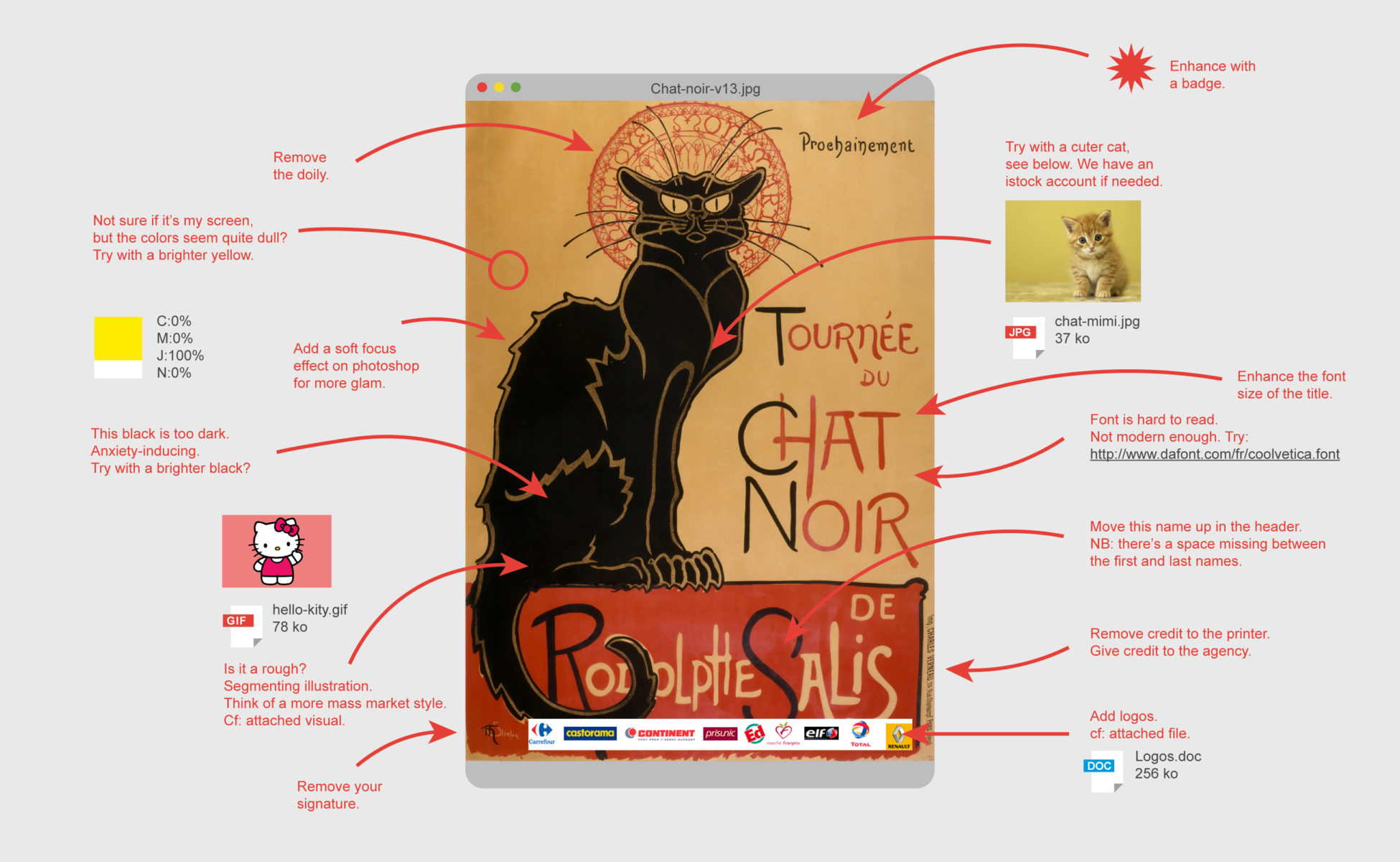Feedback
Semi-frequent reminder as we all continue to push further and further into a world with constant, varied, and often very, very imperfect and uniformed feedback on almost everything we do, (I took an Uber ride last night from the airport to a hotel, I can only wonder what my driver was thinking as he 'rated' by performance as a passenger), that lots of the feedback we encounter is basically, crap.
Take a look at the image below, courtesy of the grapheine design blog on some potential client feedback if the classic French Tournee du Chat Noir poster which advertised a Paris cabaret theater was submitted today: (click HERE for a larger version of the image)

Just because we have better and more accessible tools to give each other, our organizations, and other organization's products and services more feedback, (and have that feedback be publicly available), doesn't mean that we, any of us, have somehow gotten better at giving and receiving said feedback.
As the image above describes, even classic, iconic works of art and design could be picked apart by less experienced and talented folks who by virtue of position in an org chart or on a project team feel compelled to pass their judgement on the effort of others.
I am certainly not saying that having access to more forms and volumes of feedback is a bad thing, I am just reminding you that 'more' doesn't equate to 'better', at least not all the time.
Le Chat Noir probably doesn't need any improvement. Your last work project might not either.
But if there are people in the organization who are pit into a position where they see it is their job to give you feedback, then feedback it is you will receive.
Hopefully, it won't be the kind of feedback that compels you to alter your masterpiece either.

 Steve
Steve
